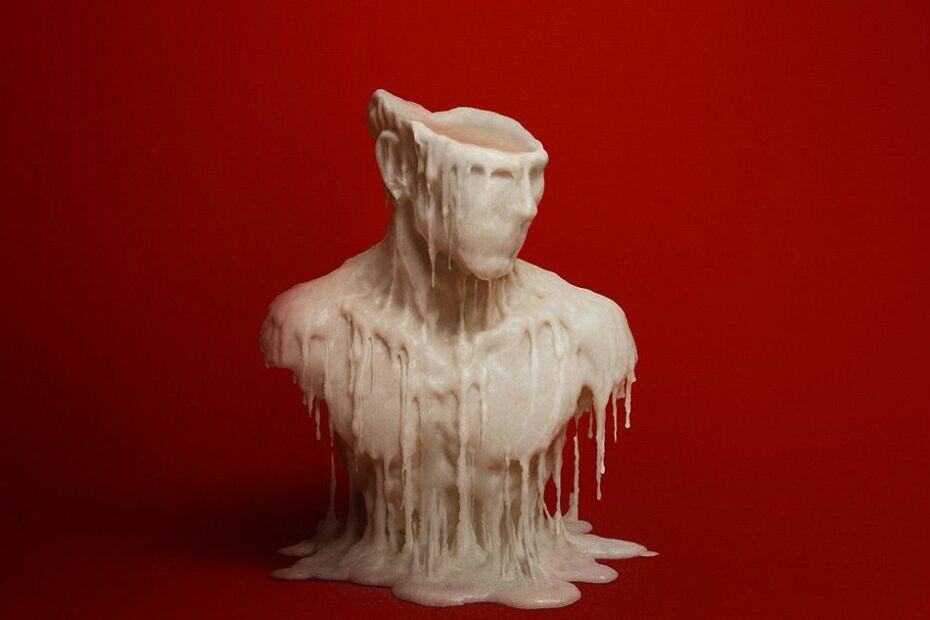Resurrection (Kuang ye shi dai) is the third feature film directed by Bi Gan. For a long time, it was unclear whether it would be presented at the Cannes Film Festival, but it was added at the last minute. The word on the street Croisette had it that the film was still not finished and only ready for a market screening, but it ended up being screened on the penultimate evening of the festival. Considering that the film contains several special effects and the fact that shooting ended as late as April, those rumours seemed even more credible than the ones surrounding Die My Love. Still, there were plenty of expectations in the air before the 10 PM screening.
This screening slot holds a special place at the Cannes Festival, and since it is the last late press screening, many people are exhausted by that point. Last year, All We Imagine as Light was screened in that time slot, and I saw several people sleeping only to find them tweeting “Masterpiece!” once the projection was over. On the other hand, a certain drowsiness might make it easier to slip into a dreamlike state that suits the film in question. Resurrection might be such a film. I will address that sentiment later. Faithful readers will recall my delight in the director’s previous film, Long Day’s Journey Into Night (Diqiu zuihou de yewan 2018), which even made me embrace 3D cinema.

What is Resurrection about? Initially, we are treated to an extensive exposition in the form of several texts. If this was the plan all along, or if the director had to do it this way due to time constraints, is unclear.1Some sources claimed that the post-production on the film was finished the day before the premiere. The premise is that humanity has found the solution for eternal life- to stop dreaming. Still, there is a group of people who prefer to dream. They are known as fantasmers, or maybe there is only one left? He/they prefers the world of illusion, or is it actually the world of cinema? Yet another caption suggests as much or bluntly spells it out.
The secrets of Resurrection
The film is divided into six elements that mirror different eras of cinema, but also refer to the five senses and the mind. The fantasmer (Jackson Yee) appears in all of them in various roles. The overarching one is a kind of movie monster. A woman (Shu Qi) meets him, and since she knows how to perceive those “illusions” for what they are, she manages to enter his dreams to find out the hidden truths therein. Or… maybe she doesn’t, and the narrative should be seen from a parallel storyline set in 2068, where the woman has undergone brain surgery. Most probably, those two perspectives are not mutually exclusive. Most spectators seem to agree that the experience is aesthetically pleasing.


During the introduction and the first segment of the film, the spectator will be excused if Guy Maddin comes to mind. Once you get that feeling in your head, it is difficult to shake it off. The comparison is not in the younger director’s favour. I watched the film twice since I was pretty tired during the first screening. On the other hand, that somnolence might make it easier to appreciate what you are watching and even add elements in the process. When I watched the film a second time, I concluded that it was made for a tired mind, since it was much less compelling on a rewatch. That is a stark contrast to Sound of Falling, for instance.
His career has only Bi Gan
An early scene repeats the same error as one of last year’s worst films, with a film score reference that comes out of nowhere. It raises the question of whether the film manages to toy with the viewer’s mind, possibly causing a Vertigo effect. Judging from some reviews, it worked its magic on many critics. In Cannes, I discussed Bi Gan with some of his compatriots, whose view of the director was less charitable than mine. He might not be a prophet in his own country.
Resurrection is uneven and overlong, with one segment being downright boring. There is an interesting overarching motif/ building block that I won’t divulge, but which might have a waxing quality. The Chinese title apparently translates as something like “wild era” or “savage age”. According to the director, all his films have different titles in Chinese vs English, and it’s out of habit, not a translation error. It is challenging to form an overall opinion on the film. Still, I think that much of what we see has been done before, notably by the aforementioned Maddin and Raoul Ruiz, not least in the latter’s La chouette aveugle (1987).
Those who can resist the temptation to persistently compare Resurrection to the Ruiz film while watching will have a higher chance of enjoying the film. It should be remembered that the director was 35 when he made this film, and he scored remarkably with his sophomore effort. With that in mind, this review may sound harsh, but it stems from the expectations raised by the previous film. Bi Gan is obviously a director to follow, and most people are bound to enjoy Resurrection as well.
Resurrection

Director: Bi Gan
Date Created: 2025-08-23 23:46
3
Pros
- Looks great most of the time
- Interesting concepts
Cons
- Too much deja vu
